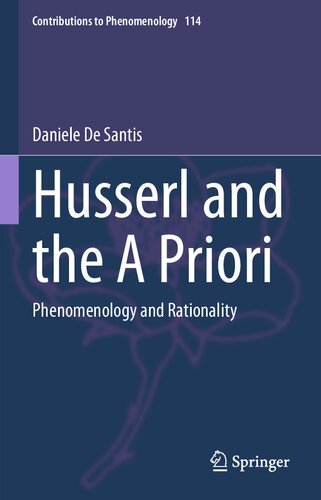

Most ebook files are in PDF format, so you can easily read them using various software such as Foxit Reader or directly on the Google Chrome browser.
Some ebook files are released by publishers in other formats such as .awz, .mobi, .epub, .fb2, etc. You may need to install specific software to read these formats on mobile/PC, such as Calibre.
Please read the tutorial at this link: https://ebookbell.com/faq
We offer FREE conversion to the popular formats you request; however, this may take some time. Therefore, right after payment, please email us, and we will try to provide the service as quickly as possible.
For some exceptional file formats or broken links (if any), please refrain from opening any disputes. Instead, email us first, and we will try to assist within a maximum of 6 hours.
EbookBell Team

4.3
88 reviewsThis book presents a systematic discussion of the development of Husserl’s concept of the a priori from his early and through his later writings. The chapters contained herein analyze the different phases and aspects of Husserl’s phenomenology of the a priori in light of his twofold notion of reason, construed as both ontological and transcendental.
Starting from the assessment of the introduction of the notion of a priori knowledge in the context of the Logical Investigations, this text uniquely explores its development during the Göttingen years. It is at this time during his work on The Crisis of European Sciences, that Husserl comes to see the a priori as a criterion to interpret the history of philosophy, notably, modern philosophy. This book sheds light upon such concepts as: essence and eidos; ideation, eidetic attitude and eidetic reduction; as well as formal and material, innate and contingent a priori. The author argues that the a priori becomes for Husserl the expression of an ontological form of rationality, i.e., the rationality immanent to being. This book appeals to students and researchers working on Husserl and phenomenology.